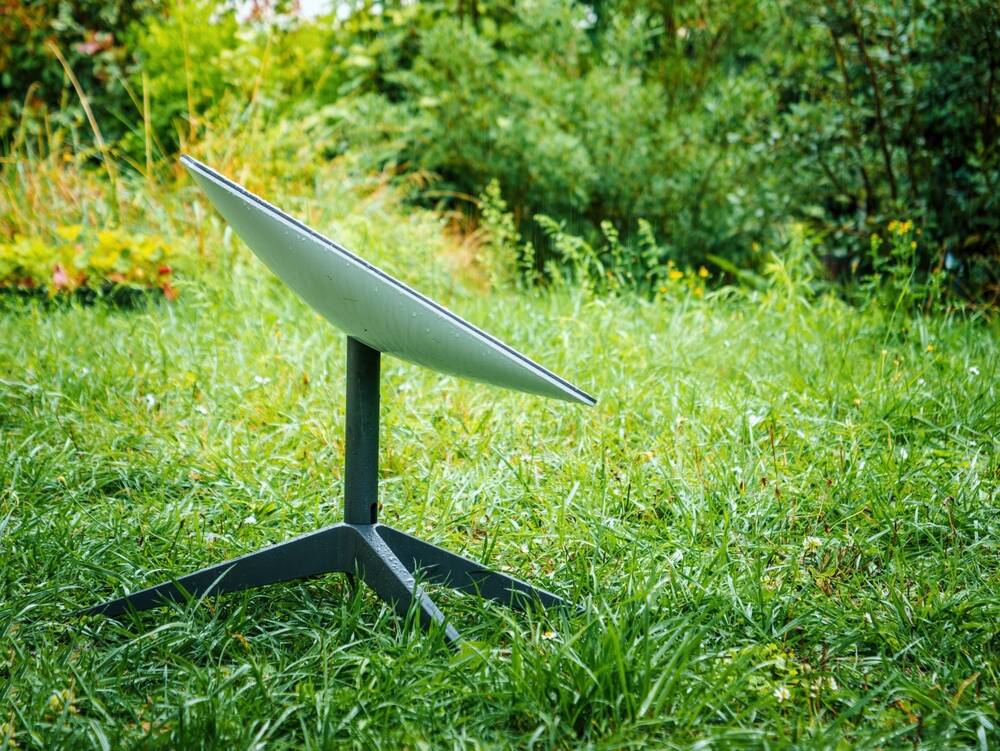FCC Really, Truly Won't Give SpaceX Nearly A Billion Bucks For Starlink Rural Broadband

Updated The US Federal Communications Commission is continuing to reject SpaceX's $885 million bid to supply wireless broadband to rural areas via its Starlink internet satellites – much to the Musk-owned biz's annoyance.
Under Ajit Pai, the erstwhile chairman of the FCC from 2017 to 2021, SpaceX was tentatively awarded $885.51 million worth of subsidies from the regulator's Rural Digital Opportunity Fund (RDOF) to provide internet service to the most remote areas across the United States.
The official contract, however, was still subject to approval, and the offer was withdrawn in mid-2022 after officials decided against Starlink's technology. That prompted a swift appeal from SpaceX.
After the FCC reiterated on Tuesday – in a 3-2 vote by commissioners down party lines – that Starlink really, truly wasn't getting the money, SpaceX's vice president of legal, Christopher Cardaci, popped off at FCC Secretary Marlene Dortch, writing in a letter that the biz was quite upset by this "poorly reasoned decision."
Cardaci claimed the federal watchdog had unfairly penalized the space biz for not meeting the contract's internet speed requirements – by testing its broadband connectivity in regions the RDOF didn't cover. He argued SpaceX could always improve its internet speeds by launching more satellites to boost coverage, but the FCC ignored it.
"SpaceX is deeply disappointed and perplexed by the commission's decision to exclude SpaceX's Starlink satellite broadband service from the RDOF," he wrote [PDF]. "This decision directly undermines the very goal of RDOF: to connect unserved and underserved Americans."
The FCC indeed doubted SpaceX's capabilities. It argued splashing that much money on the rocket maker's technology was risky, and wouldn't be the best use of the Universal Service Fund the watchdog stocks with the proceeds from taxing telecommunications providers. The RDOF draws from that universal fund.
- FCC commissioner demands review of Starlink rural broadband subsidies
- FCC decides against giving Starlink $1b in rural broadband subsidies
- Musk's broadband satellite kingdom Starlink now cash flow positive – or so he claims
FCC Chairwoman Jessica Rosenworcel said in a statement [PDF] on Tuesday: "The FCC is tasked with ensuring consumers everywhere have access to high-speed broadband that is reliable and affordable. The agency also has a responsibility to be a good steward of limited public funds meant to expand access to rural broadband, not fund applicants that fail to meet basic program requirements."
She denied her agency had botched its assessment of Starlink, as some claimed, and upheld the earlier decision to withdraw SpaceX's initial contract. "The FCC followed a careful legal, technical and policy review to determine that this applicant had failed to meet its burden to be entitled to nearly $900 million in universal service funds for almost a decade," she wrote.
SpaceX's appeal for a rethink clearly didn't work, and it's not clear if the Elon Musk-led org will take the issue further, such as to court. The Register has asked for comment. We note, as you probably also have, that SpaceX provides rockets and other stuff for the United States' space programs.
In the meantime, Cardaci's protest letter noted that SpaceX has more than 5,000 internet-relay satellites in orbit and is providing broadband service to Americans across all 50 states – including the northernmost areas of Alaska. He also complained Uncle Sam was "continuing to overlook the facts in the record."
The RDOF program has been authorized to spend billions of dollars to fund efforts to bring gigabit broadband service to over 3,458,000 locations in 49 US states and the Northern Mariana Islands. The initiative hasn't gone quite to plan, however – the FCC imposed fines [PDF] totaling nearly $9 million on 22 entities that had applied for funding but later defaulted on things like financial audits as part of the process. ®
Updated to add on December 14
Interesting that the FCC just granted Starlink a temporary pass to experiment with cellular communications: SpaceX has until June 14 to try out relaying internet from orbit to unmodified T-Mobile US phones on the ground. The satellites will use T-Mo's 1.91GHz and 1.99GHz radio bands.
From Chip War To Cloud War: The Next Frontier In Global Tech Competition
The global chip war, characterized by intense competition among nations and corporations for supremacy in semiconductor ... Read more
The High Stakes Of Tech Regulation: Security Risks And Market Dynamics
The influence of tech giants in the global economy continues to grow, raising crucial questions about how to balance sec... Read more
The Tyranny Of Instagram Interiors: Why It's Time To Break Free From Algorithm-Driven Aesthetics
Instagram has become a dominant force in shaping interior design trends, offering a seemingly endless stream of inspirat... Read more
The Data Crunch In AI: Strategies For Sustainability
Exploring solutions to the imminent exhaustion of internet data for AI training.As the artificial intelligence (AI) indu... Read more
Google Abandons Four-Year Effort To Remove Cookies From Chrome Browser
After four years of dedicated effort, Google has decided to abandon its plan to remove third-party cookies from its Chro... Read more
LinkedIn Embraces AI And Gamification To Drive User Engagement And Revenue
In an effort to tackle slowing revenue growth and enhance user engagement, LinkedIn is turning to artificial intelligenc... Read more

